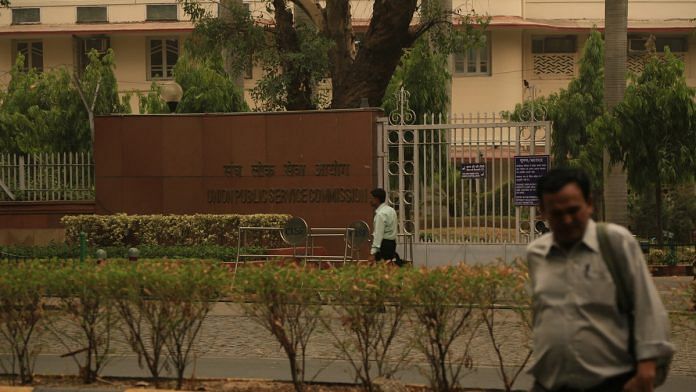There has been an increasing trend of posting retired IAS officers, often those who have superannuated many years ago, as chief principal secretary to the chief minister in various states. While retired bureaucrats have been hired in a purely advisory capacity, appointing chief principal secretaries with powers to authoritatively communicate the orders and directions of the CM, under their own signatures, is a relatively recent contrivance.
The first example that comes to mind is that of Gujarat, where Kuniyil Kailashnathan, an IAS officer of 1979 batch who retired in May 2013, has been the chief principal secretary (CPS) to all the chief ministers – from Narendra Modi to the current incumbent Bhupendra Patel. He was first appointed as principal secretary to Modi in 2006 and has been a constant fixture in the CM Secretariat for over 15 years, being on his seventh extension.
In Punjab, Suresh Kumar, an IAS officer of 1983 batch who had retired in April 2016 in the rank of additional chief secretary, was the CPS to Captain Amarinder Singh since March 2017, demitting office only recently, as his tenure was coterminous with that of the CM. Granted a rank and status equivalent to the Union Cabinet Secretary, Suresh Kumar’s appointment was declared unconstitutional by the Punjab and Haryana High Court in January 2018, but a division bench of the High Court, on an appeal filed by the Punjab government, had granted a stay and he continued to work as CPS. The final arguments in the appeal were concluded in August this year and the judgment stands reserved.
Haryana followed the example of Punjab in appointing their former chief secretary and a retired IAS officer of 1982 batch, Depinder Singh Dhesi—who had retired in June 2019—as CPS to CM Manohar Lal Khattar in October 2020. Dhesi, who had been working as chairman of the Haryana State Electricity Regulatory Authority, is still working as CPS.
Those in favour of this arrangement argue that with an ambitious development agenda, most CMs would prefer trusted and experienced officers to push the slothful bureaucracy into expeditious action. The chief secretary is too busy in his/her normal duties and coordination work, and thus an officer even senior to them in the IAS cadre, even if retired, is required for efficient and effective functioning of the CM’s office, through his/her principal staff officer.
Also read: From Modi to Patel, 4 CMs have ruled Gujarat, but this ex-IAS officer is a constant in CMO
CPS and the issue of accountability
Apart from narrow technical and legalistic objections that the post of the principal secretary to CM is earmarked for an IAS officer, under the statutory rules and regulations framed under the All India Services Act, 1951, a broader issue of accountability arises.
A retired officer is not bound by any code of conduct, whereas the serving IAS/IPS officers have a stringent code, stipulated under the statutory rules. Moreover, such officers are generally accorded the rank and status of cabinet secretary, a minister of state or even cabinet minister, thereby eroding importance and authority of the time-tested institution of the chief secretary to the government. Would a chief secretary be in a position to institute an inquiry against the CPS, who is higher in rank and status, in case of any allegations levelled against the CPS?
Every chief minister as well as minister is administered an oath of office and secrecy by the Governor, before s/he assumes office. Although any decision of the Council of Ministers is a collective one, yet discussions therein can be quite vehement and animated. While the serving IAS officers are also bound by an oath to uphold the Constitution of India, a CPS engaged on contract is under no such statutory onus. In fact, it is potentially a serious matter of breach of a constitutional oath of secrecy to permit a CPS to not only attend but also actively participate in the discussions in the cabinet.
Also read: Cleared and reinstated — what happens to many IAS officers suspended for misconduct
CPS negates the essence of All-India Services
No qualifications are generally fixed for the post of the CPS; no rules and regulations are framed or notified; no applications are invited; no other eligible or similarly placed candidates are given an opportunity to apply. Neither Union Public Service Commission (UPSC) nor State PSC is associated with the selection process, although the post of the CPS is undisputedly a civil post under the state government. Such unilateral appointments are also thus hit by Articles 14 and 16 of the Constitution.
The framework of a neutral, merit-driven and independent civil service in the states as well as in the Union is essentially a “basic feature” of our Constitution. This is further amplified by the All-India Services (IAS being one) as per Article 310. Thus, the statutory rules and regulations framed under the All India Services Act, 1951 are a kind of national consensus arrived at by the Centre and the states, as regards senior civil service posts.
Appointment of CPS from among retired officers, therefore, negates the very essence of the All-India Services and such a precedent could actually be a prelude to establishment of other state-level posts, superior in rank to All-India Services, that are filled up on “pick-and-choose” basis. This is not permissible under our Constitution, which envisages a neutral and permanent cadre of civil service, recruited purely on merit through constitutional entities like the UPSC and state PSCs. After all, we are not a banana republic, based on a system of spoils.
KBS Sidhu recently superannuated from the IAS, 1984 batch of Punjab cadre. He tweets @kbssidhu1961. Views expressed are personal.
(Edited by Prashant)



